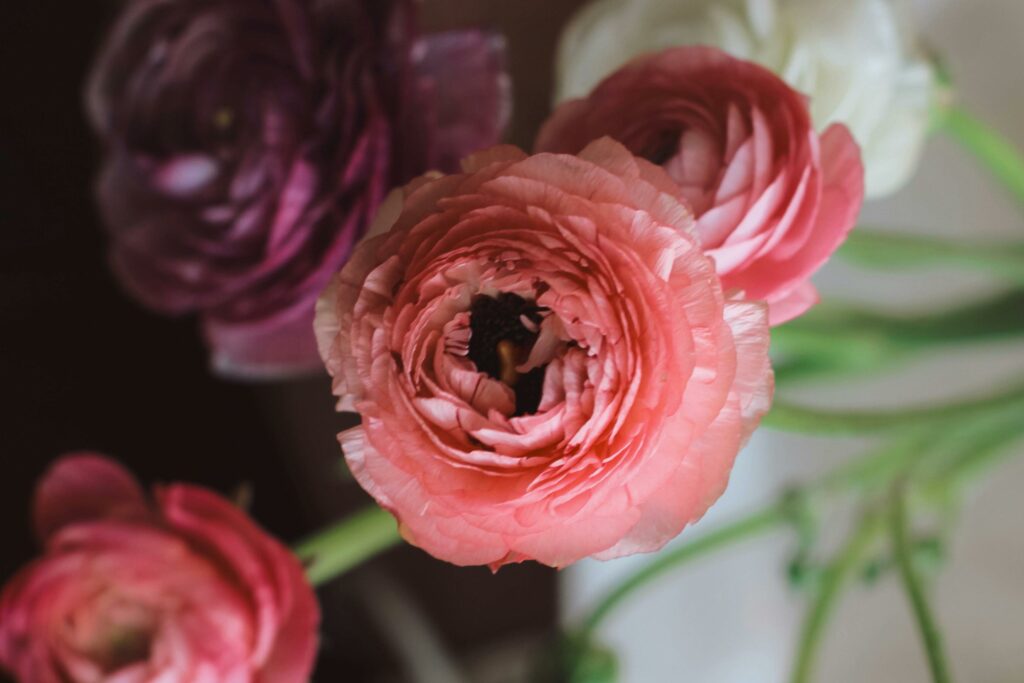Flowers are a universal way to celebrate a new life, but in Asia, cultural traditions, symbolism, and taboos vary widely. Sending flowers thoughtfully can convey warmth, respect, and joy.
1. Japan
Cultural Significance:
In Japan, flowers are deeply symbolic. The Japanese often consider colors, types, and arrangements carefully. Celebrating a newborn focuses on happiness, growth, and good fortune.
Popular Choices:
- Pink or white roses: Symbolize purity and happiness.
- Lilies: Represent innocence and new beginnings.
- Carnations (soft pastel): Symbolize love and admiration.
Etiquette Tips:
- Avoid chrysanthemums, as they are associated with funerals.
- Use pastel tones; bright red can be seen as aggressive.
- Present flowers with a small, decorative card expressing congratulations.
2. China
Cultural Significance:
In Chinese culture, colors and numbers are important. Red and gold are lucky, while certain flowers symbolize blessings and prosperity for the baby.
Popular Choices:
- Peonies: Symbolize wealth and good fortune.
- Lotus flowers: Represent purity and enlightenment.
- Orchids: Denote beauty, refinement, and fertility.
Etiquette Tips:
- Avoid white flowers, as white is associated with mourning.
- Use pairs of flowers or even numbers, which are seen as lucky for joyful occasions.
- Including a red envelope with a small gift is a common tradition alongside flowers.
3. India
Cultural Significance:
In India, flowers are central to celebrations, symbolizing purity, life, and blessings. The choice often depends on regional and religious customs.
Popular Choices:
- Marigolds: Represent auspiciousness and positivity.
- Lotus flowers: Sacred in Hinduism, symbolize divine beauty and purity.
- Roses (light colors): Express love and blessings.
Etiquette Tips:
- Avoid dark-colored flowers (black, deep purple), which can symbolize mourning.
- Gifting flowers with a small traditional sweet or card enhances the gesture.
- Make sure flowers are fresh and vibrant, as freshness is linked to positive energy.
4. South Korea
Cultural Significance:
Flowers for newborns often symbolize joy, hope, and health. Parents also appreciate gifts that are practical or symbolic.
Popular Choices:
- Peonies: Represent prosperity and good fortune.
- Baby’s breath: Symbolizes purity and innocence.
- Carnations or soft-toned bouquets: Convey heartfelt congratulations.
Etiquette Tips:
- Avoid overly large or extravagant arrangements; subtle elegance is preferred.
- White flowers are generally avoided at celebratory events.
- Pair flowers with a thoughtful card, sometimes including a small gift for the baby.
5. Thailand
Cultural Significance:
Flowers in Thailand often carry spiritual meaning. Certain flowers are associated with blessings, protection, and good health for the newborn.
Popular Choices:
- Jasmine: Symbolizes purity and motherhood.
- Orchids: Represent fertility, beauty, and luxury.
- Marigolds: Linked to prosperity and good luck.
Etiquette Tips:
- Avoid gifting thorny flowers or anything dark, which can symbolize bad luck.
- Flowers are often presented along with fruits or small gifts for a more holistic blessing.
- Use bright, cheerful arrangements to convey happiness and celebration.
6. Vietnam
Cultural Significance:
In Vietnam, colors and symbolism are important. Flowers for newborns convey blessings, health, and prosperity.
Popular Choices:
- Peonies or roses in pink/yellow: Symbolize joy and luck.
- Orchids: Represent elegance and prosperity.
- Chrysanthemums (yellow/gold for happiness, avoid white): Used carefully for joyful occasions.
Etiquette Tips:
- White flowers should be avoided, as they are associated with funerals.
- Bright, lively arrangements are preferred.
- Often accompanied by red envelopes or small gifts for extra luck.
Practical Tips for Sending Newborn Flowers Across Asia
- Check local customs first – Even within countries, urban and rural practices may differ.
- Use soft, bright, or pastel colors – Symbolize innocence and joy.
- Avoid white, black, or dark-colored flowers for celebrations.
- Include a card with heartfelt wishes – Often translated into the local language for extra thoughtfulness.
- Consider practicality – Some families prefer potted plants or flowers that last longer, especially in warm climates.
Celebrating a newborn with flowers is universally appreciated, but the type, color, and presentation can carry profound cultural significance. Thoughtfulness and awareness of local customs make your gift not just beautiful, but deeply meaningful.

